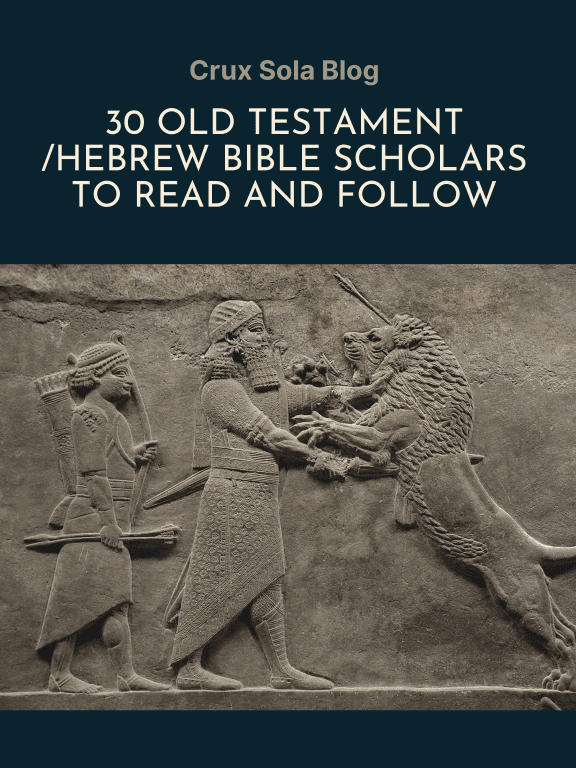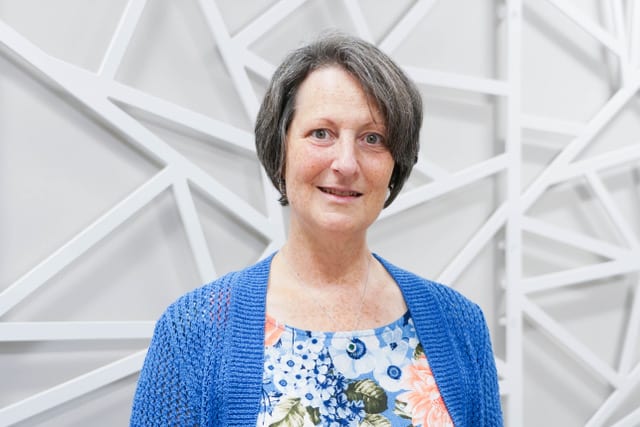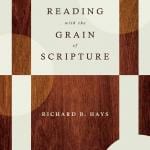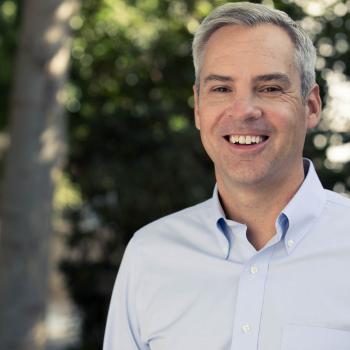
Lissa M. Wray Beal, Professor of Old Testament, Providence Theological Seminary

Why do you love teaching and researching about the OT/HB?
In the Old Testament, I see God’s love and mercy demonstrated powerfully in the affairs of nations, but also intimately in the every-day of human lives. I am captured by this aspect of the Old Testament, for within this juxtaposition God moves history towards his purposes. Those purposes find their culmination in Jesus Christ, and in order to know Christ most fully, my conviction is that the Old Testament must be known and studied. Early in my walk of Christian discipleship I had a pastor who preached often from the Old Testament; it was an eye-opener for me, and excited my heart. Now, the most rewarding part of teaching and researching the Old Testament is when it connects with Christians and they have those “aha!” moments of seeing God in a new way, or understanding how Old Testament passages prepare for, and reveal Christ.
What is one “big idea” in your scholarship?
In all my scholarship, I’m seeking to be attentive to hear God’s word, and the Big Story that spans the Old and New Testaments. Whether researching historical background, narrative shape, or canonical connections, this is my end goal. Perhaps this is why I am drawn to use narrative method, with attention to biblical theology and canonical connections.
I hope that my work is an enduring resource for the Church; I hope my teaching helps my students fall in love with the Old Testament, and commit to reading and preaching it as a necessary and life-giving part of Christian Scripture.
Who is one of your academic heroes and why do you admire them?
Well, a modern-day hero for me would be Tremper Longman. I encountered his writing in my seminary training. He was lucid and accessible, and helped me enter the strange new world of the Old Testament. His work continues to be a helpful resource to me and my students, and in him I see scholarship given in service to God’s people. I’ve also served with him in board leadership and he is a gracious, humble, and inclusive leader.
If I could pick a hero from history, it would definitely be Bede. His work has a vitality that echoes across the centuries, and which demonstrates his faithful commitment to his calling.
What books were formative for you when you were a student? (name 2-3 books) Why were they so important and shaping?
I still remember reading Walter Brueggemann’s The Land while in seminary. It was the first time I’d encountered biblical theology, and it showed how one could trace a theme throughout the canon. Being introduced to the crucial role of the land in Israel’s history was instrumental in forming my own research interests in Israel’s relationship to the land in Joshua-Kings and Jeremiah.
Robert Alter’s The Art of Biblical Narrative connected with my love of Old Testament narrative–it was often these narrative passages that were the focus of my preaching in my pastoral ministry before I entered seminary. Alter introduced me to the idea that narrative analysis could make me a better reader of these texts, noting how the narrative art contributed to framing the story’s point. Realizing that I could marry my love of narrative, and my desire for study was very liberating!
Read Wray Beal’s Work
If you ran into me at SBL, and you didn’t want to talk about OT/HB studies, what would you want to talk about?
Gardening is my place to renew! There is nothing better than sitting in my perennial garden for reflection, or working the earth as a counterpoint to study. Some of my most profound thoughts on the Christian life come in the midst of my garden. Besides gardening, we travel as much as we can (especially to Europe). Our travels often become pilgrimages: as lovers of history and the church, we are drawn to cathedrals and churches, and there find moments of worship as we journey.
What is a research/writing project you are working on right now that you are excited about?
I’m writing a commentary (and some papers) on Jeremiah. This prophet breaks my heart. In his words I hear God’s love for his people, his pain that they have abandoned him, and his commitment to not let them go. Working on this book humbles me, for it presents many interpretive challenges. But it gives me hope, too, for it speaks passionately of God’s covenant faithfulness.















